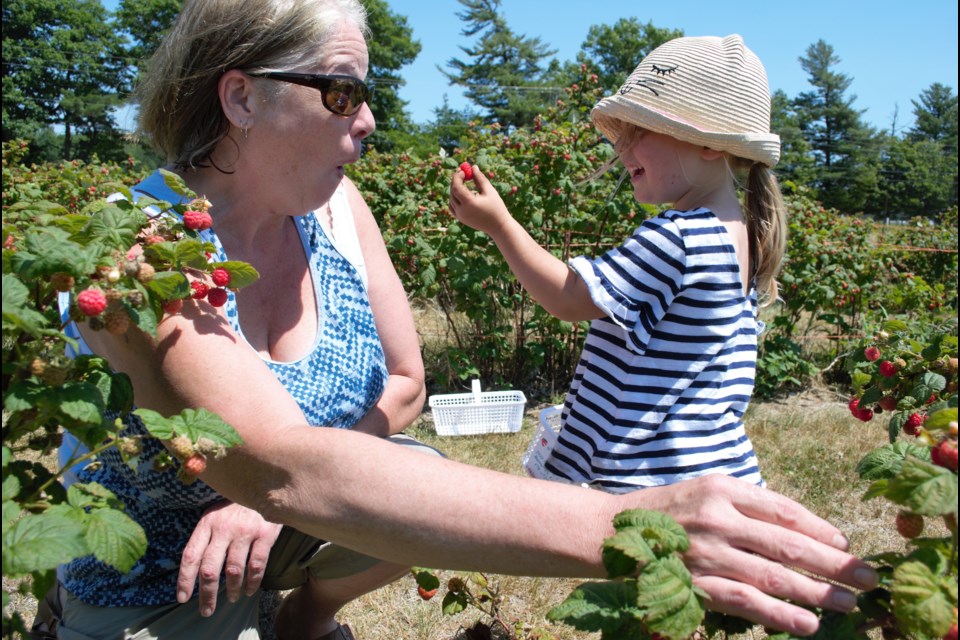The weather is only one of many issues facing Ontario farmers this year.
Morris Gervais, owner of Barrie Hill Farms in Springwater Township, says the current heat wave has made things difficult for his strawberry crops.
“I’ve been in this business my whole life. We’ve been doing pick-your-own-strawberries since 1977. I cannot remember a stretch of heat that long during strawberry season... At the end of June and early July, to be that hot for that long, I don’t ever remember that,” says Gervais.
David Phillips, senior climatologist with Environment Canada, says that while the season got off to a great start in April and May with lots of precipitation, the rain has fizzled out in June and July.
“We’re close to using the d-word (drought), but not quite yet,” says Phillips.
According to Phillips, April saw two times the amount of precipitation as normal, while May saw normal precipitation levels. In June, precipitation was about half of normal levels at 52 millimetres.
The lack of precipitation in June combined with the number of days where temperatures reached over 30 degrees has lead to a challenging season for local farmers.
Although Phillips indicates that this year hasn’t quite been record breaking yet, the weather will likely get worse before it gets better, with more days over 30 degrees on the horizon and little precipitation expected.
“What you want is the kind of rain that would spoil your holidays, over multiple days,” says Phillips.
Gervais says that, due to the heat, the strawberry and pea season has been shortened and yield is definitely down, but that diversifying as a farmer is just good sense due to these kinds of scenarios.
“We’ve got some other crops that are doing well because of (the weather). We’ve got pickling cucumbers. Our cantaloupe and watermelon, those are going to be good crops this year. That’s why we grow more than one crop – so if one crop is down, another one is up,” he says.
“You win some, you lose some,” laughs Gervais.
The weather hasn’t been the only challenge Ontario farmers have had to face this year.
“Farmers in Ontario have been under huge pressure from the drastic minimum wage increase. That’s been a real struggle this year as well,” says Gervais. “We’re seeing the market for Ontario produce eroding, because American fruits and vegetables are coming in here and are undercutting our prices, in a time when we can least afford to be price competitive.”
When shopping at local grocery stores, Gervais says he hopes the difference in price between Canadian and American produce doesn’t turn consumers off the idea of shopping local.
“American strawberries are being pushed in at, what we believe to be, either at or below the cost of production in the United States,” says Gervais. “American interests are aggressively trying to take over the fruit and vegetable market here in Ontario. I think if the government doesn’t step up and pay attention to what’s happening, there’s going to be an exodus from our industry.”
Despite American-grown produce tending toward being cheaper, Gervais says he believes Ontario consumers prefer to shop local, if they can.
“The government needs to step up and find innovative and stronger ways to support fruit and vegetable farming in Ontario, and consumers need to stick with us through this trying period,” says Gervais. “If politicians aren’t going to listen, people still have an opportunity to vote with their food dollars. We’re not going to be able to be the cheapest now with the minimum wage increase, but we’ll still be here.”
“We like what we do and we want to keep doing it.”
Barrie Hill Farms lists their crop status daily on their website.



